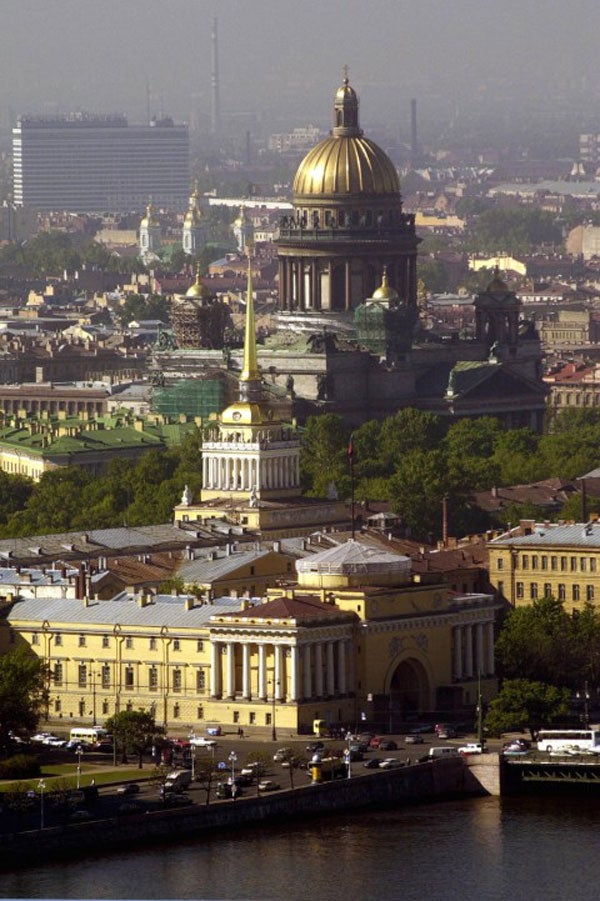The Life Of An Unknown Man, By Andreï Makine, trans. Geoffrey Strachan

Two truncated love stories – a quietly heroic, enduring passion that gives counterpoint to a desultory romantic failure – combine in Andreï Makine's eleventh novel. It reprises the Russian author's grand themes of personal dignity and integrity, passion and stoicism in the face of sweeping historical forces. Makine has a thing or two to say about exile and isolation, being Siberian by birth but having drafted his debut novel, Le Testament Francais, in French while homeless in Paris, where he sought asylum in 1987.
The romantic failure belongs to Ivan Shutov, a dissident Russian writer on the far side of middle age who is stuck in his Parisian garret with an unsaleable manuscript. Shutov's admiration for the perfection of form in Chekhov's short stories brings him to rail against the poverty of contemporary literature – which is championed by Shutov's young squeeze Léa, a provincial youngster whom he first met in the Gare de l'Est but whose curiosity is now drawing her to other men.
Insulted by Léa, Shutov heads back to St Petersberg to find the city gripped by the carnival burlesque of tercentenary festivities. Bewildered, he witnesses revellers charged with uproarious energy in a collective exorcism: "The frenzied search for a new logic to life after the highly logical madness of dictatorship". Dislocated in the city's glitzy modernity, Shutov feels like an actor who has missed his cue until he encounters a decrepit old survivor, Georgy Lvovich Volsky.
Recounted with the spare intensity of Conrad's Lord Jim, Volsky's volunteered memoir is the real meat of this slim novel. From famine in the siege of Leningrad to soldiering made carelessly lethal through lack of hope, from a reprieved love to gulags and purges, Volsky's epic confession maintains an intimate, fabular tone. Occasional hallucinatory passages amplify extremity of hardship or feeling. They augment the simple language of Makine's linear plot, which is studded with fleeting, jewelled descriptions in another of Geoffrey Strachan's lucid translations.
An idea of love that can transcend overwhelming brutality is Makine's golden thread. Human Love, his last novel, took a geographic sortie into Africa's indiscriminate carnage but continued his ferocious enquiry into the moral and emotional grounding of humanity. Previous potent novels of dogma and dissidence, all written in Makine's signature style of a well-honed lyricism, collectively probe a more Russian experience.
The Woman Who Waited (2004) was set in an austere landscape, emptied of men by the war; its enigmatic central figure possessed an unfathomable serenity akin to the nobility of endurance exhibited by Volsky. The Earth and Sky of Jacques Dorme (2003) again used the device of a writer recounting another's life, this time exploring an affair during the Battle of Stalingrad. Makine's impressive back-list majors on war-ravaged loss and the unreliable nature of history.
Shutov's other romantic failure is to call himself a Soviet, not a Russian – a political sentimentality exposed by Volsky's extraordinary testimony of the nightmarish violence of that period. One of Makine's great strengths lies in his delicate setting of intimate lives against the impersonal machinery of Soviet totalitarianism. Juxtaposing the solipsistic wretchedness of Shutov and the carnival froth of St Petersberg with the gravity of Volsky's experience gives a jolt of reconnection with a sense of history, and suggests the shallowness of modern culture's purchase on the blood-soaked soil of the recent past.
The Life of an Unknown Man may lack some of the fierce elegance of Makine's best work. But it reiterates the author's passionate attachment to Russia, and his determination to celebrate individual humanity while excoriating the oppressive politics that have shaped our present reality.
Join our commenting forum
Join thought-provoking conversations, follow other Independent readers and see their replies
Comments
Bookmark popover
Removed from bookmarks